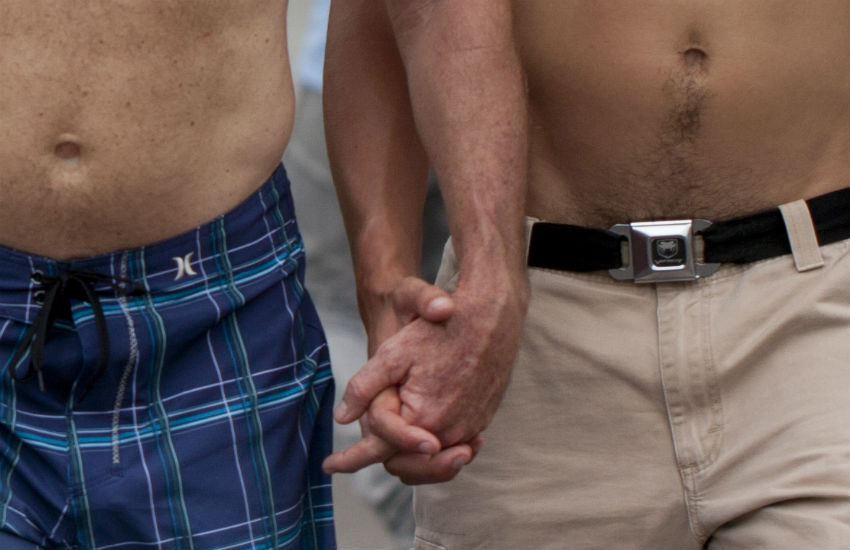The Supreme Court ruled yesterday (27 June) the UK Government must offer civil partnerships to opposite-sex couples.
Same-sex couples have been able to marry or enter civil partnerships since 2014. While heterosexual couples were not allowed civil partnerships, until Wednesday’s ruling.
But it seems the UK Government could now potentially scrap civil marriages altogether.
The case was brought by London-based couple, Rebecca Steinfeld and Charles Keidan.
Handing down its ruling, the Supreme Court said the Civil Partnership Act 2004 was incompatible with the European Convention on Human Rights.
The Government doesn’t have to accept the Supreme Court’s decision, although it is unlikely it will reject it.
Prague Pride 2017. | Photo: dominique cappronnier / Flickr
But the case raises a number of urgent issues that Whitehall will come under pressure to address and provide clarity on.
If the Government accepts the Supreme Court’s decision, the UK will effectively have two types of union process – marriage and civil partnerships.
So will it decide to bring them together into one unified system in future? And if so, how will it handle the issue in places like Northern Ireland, where same-sex couples can enter civil partnerships, but not get married?
UK Government: ‘We will respond in due course’
According to the latest data from the UK Office of National Statistics, there were 6,493 marriages of same-sex couples in 2015.
When same-sex marriage became legal in 2014, civil partnerships dropped from 5,646 in 2013 to 1,683 in 2014.
Then in 2015, this number dropped even further to just 861.
A total of 239,020 opposite-sex couples entered into marriages in 2015. But it is unclear just how many would choose civil partnerships, if legal.
Gay Star News contacted the Government Equalities Office, which didn’t appear to have anticipated the ruling.
‘The Government is very aware of its legal obligations, and we will obviously be considering this judgment of the Supreme Court with great care’ a Government Equalities Office spokesperson said.
‘We recognize the sensitive and personal issues involved in this case and acknowledge, as the Supreme Court does, the genuine convictions of the couple involved.’
‘We will study the Court’s judgment carefully and respond in due course.’
How will this affect Northern Ireland?
According to data from the Northern Ireland Statistics and Research Agency, 89 same-sex couples entered into civil partnerships in 2015. It stayed around the same in 2016, with 84 and then 92 last year.
The actions of the UK Government could have a serious effect on these civil partnerships in Northern Ireland.

Photo: Nathan Rupert / Flickr
Any decision the Government makes will need the approval and cooperation of Ireland’s Democratic Unionist Party.
LGBTI civil partnerships are legal in Northern Ireland, but same-sex marriage is not. The DUP have thwarted five previous attempts to legalize same-sex marriage.
The DUP exerted power over the British Government in its Brexit negotiations. This then threatened to strain relations between Stormont and Whitehall.
Any pressure for the DUP to modernize its stance on gay marriage would then bring pressure from other groups for them to modernize Ireland’s archaic and controversial abortion laws too.







